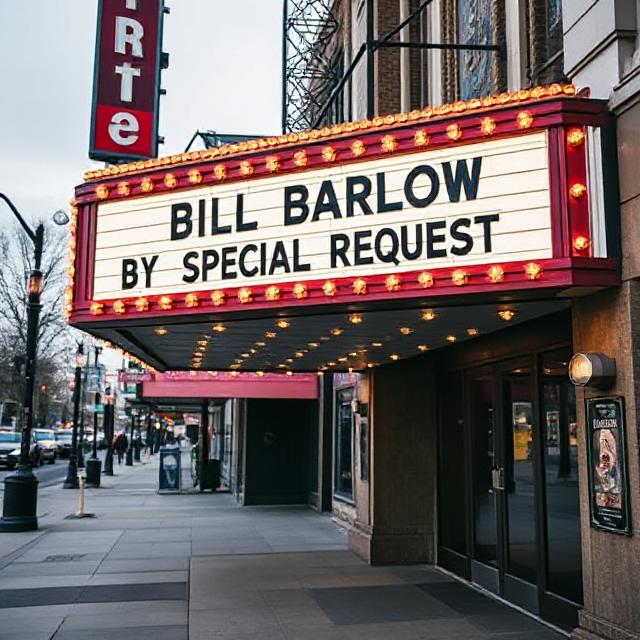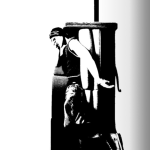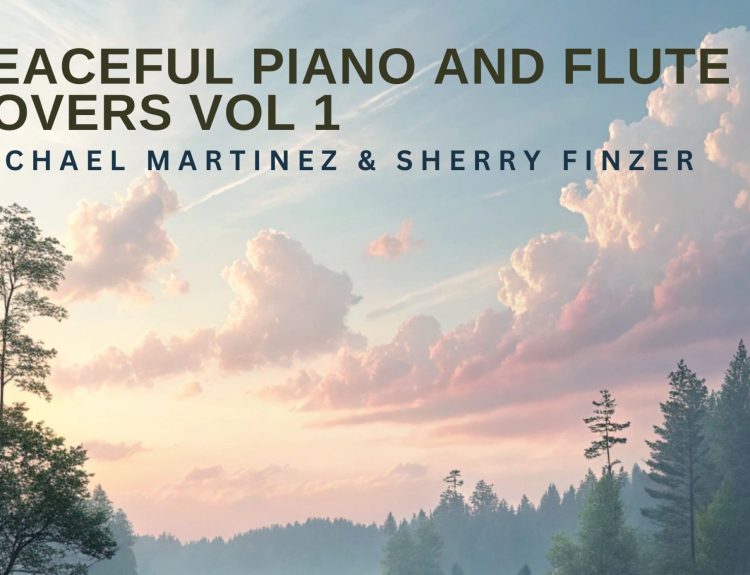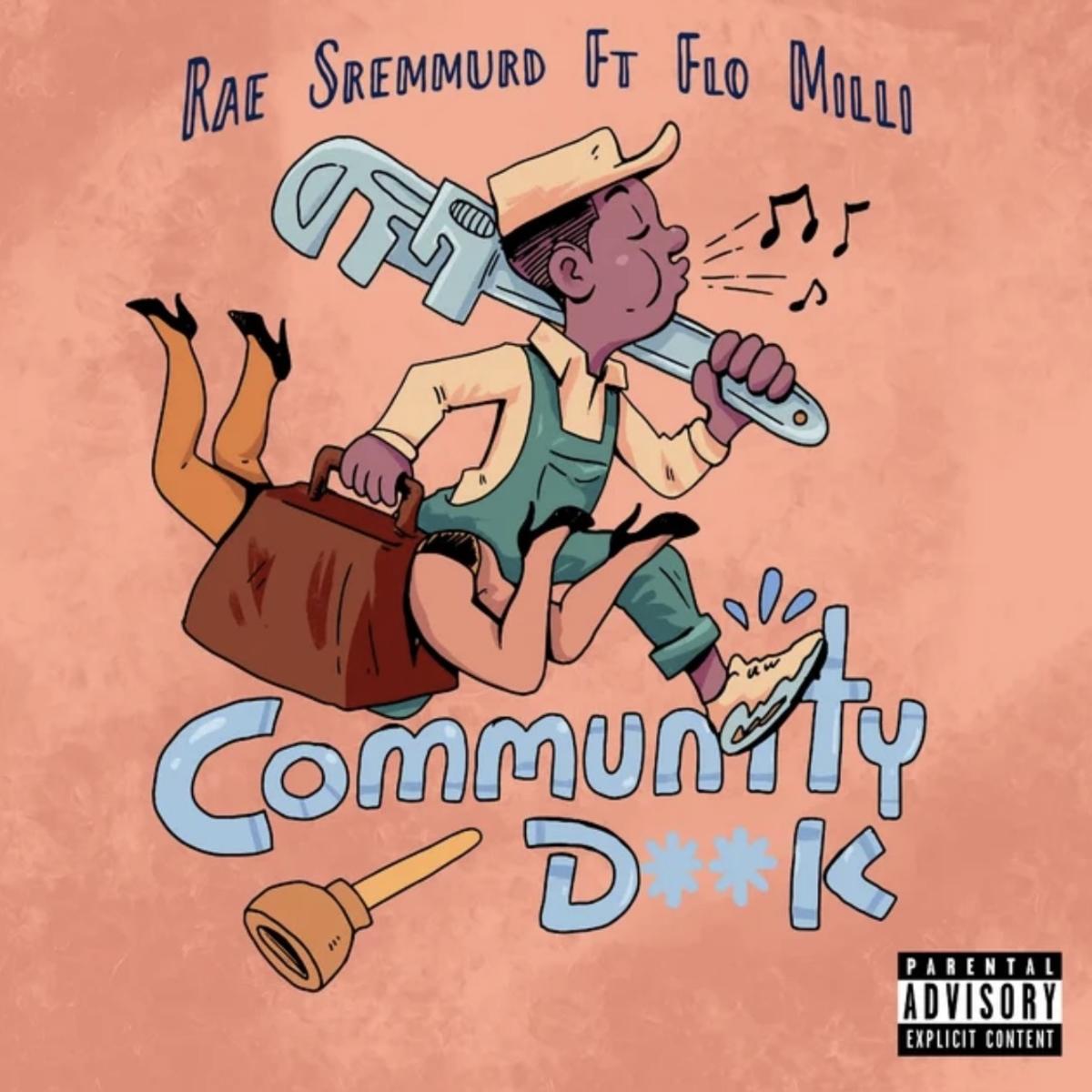When it comes to the art of storytelling through music, Bill Barlow has long held a place of quiet mastery. Making his third appearance on this platform, the Tampa-based digital composer and observational songwriter once again proves that music can be intimate and cinematic. His recent release, “By Special Request,” feels like an open diary—one that hums with the energy of lived experience, vulnerability, and poetic grace.
Barlow’s career in advertising and marketing has no doubt sharpened his ability to connect with an audience, but it’s through song that his most authentic voice shines. His deep-rooted passion for songwriting and poetry dates back to his teenage years, and here, it blossoms fully. As Barlow himself puts it, “These tracks were chosen by my fans, friends, and family. I feel they demonstrate my lane as an entertaining, emotional storyteller.”
The album opens with “She’s A Lonely Highway (Melancholic Exit),” a cinematic overture that immediately immerses us (listeners) in Barlow’s introspective world. His digital production here evokes the feeling of an endless drive at twilight—soft synth textures and moody guitars intertwine beneath his voice, which carries tenderness and resignation. It’s a song of parting and self-discovery, perfectly setting the tone for what’s to come.
“Less Like Me” follows with a more confessional air. The lyrics dissect the quiet battle between authenticity and expectation. Barlow’s vocals here are deeply vulnerable. They’re clear and slightly frayed at the edges, as if he’s revealing a truth he’s lived with for far too long. The minimalist percussion and layered harmonies give the song an intimate, almost diary-like quality.
In “Waiting For The Fight,” Barlow turns up the emotional energy. This track pulses with tension and rhythm, mirroring the anxious anticipation of conflict in a relationship. His delivery is impassioned, his phrasing sharp yet melodic, and the production builds with each verse. The electronic beats meet warm acoustic flourishes in a striking balance between modernity and nostalgia.
“Another Yesterday” slows the pace, wrapping us in melancholy reflections of time and regret. The digital strings shimmer against a soft piano backdrop, highlighting Barlow’s skill at blending organic and electronic textures. His storytelling shines here; he turns a simple longing for the past into a universal meditation on how we measure our days.
Then comes “Don’t Tell Me Lies,” a mid-tempo gem that feels like Barlow’s nod to classic rock songwriting, filtered through his digital sensibilities. The synth bassline gives it momentum, while his vocals glide between frustration and forgiveness. It’s emotionally charged yet rhythmically engaging—proof of his knack for fusing introspection with accessibility.
“Advances” explores the complexities of intimacy in the modern world, where love and hesitation often collide. The instrumentation is more electronic here, with atmospheric layers that give the song an ethereal pulse. Barlow’s voice is measured but emotive and anchors the piece in human vulnerability.
In “Maybe Love,” we hear a softer, more romantic side. His delivery is warm, conversational, and sincere. There’s something classic about this one, reminiscent of the confessional pop ballads of the ’70s and ’80s, but updated with Barlow’s signature digital polish.
The emotional core of the album arguably lies in “HEARTBREAK,” a song that does exactly what its title promises. With sparse instrumentation—just a gentle piano progression and subtle electronic ambiance—places full focus on the singer’s vocals. You can hear the ache in every syllable. This is storytelling at its purest: raw emotion shaped by precision and craft.
“Blame Love” shifts perspective slightly, examining how affection can turn into frustration. The instrumentation here is fuller, with layered guitars and a driving beat that gives it a cinematic lift. The vocal tone here grows more assertive. It’s less a lament and more an understanding of love’s paradoxes.
“The Silence” feels like a haunting interlude, where stillness speaks louder than words. The production is lush and atmospheric, carrying echoes of ambient pop and modern classical influences. It’s a piece that invites reflection, almost like a breath between emotional waves.
The contemplative tone continues with “Life Without A Rhyme,” where Barlow captures the sense of drifting through life’s chaos without direction. The delivery is gentle but filled with philosophical weight. The use of digital textures—soft pulses and reverb-drenched chords—adds to the song’s floating and dreamlike quality.
“Hearing Voices” plays with the theme of inner dialogue and self-doubt. The rhythmic interplay between synths and percussion gives it a subtle tension. Vocally, Barlow is dynamic—at times whispering, at others commanding. This perfectly embodies the duality of introspection and anxiety.
“What Should I Do” steps into folk-pop territory, balancing bright melodies with pensive lyrics. It’s one of the album’s most accessible moments, where Barlow’s natural storytelling instincts shine through. His phrasing feels conversational, pulling us directly into his thought process.
“Thought Goes to Sundays” is steeped in nostalgia. Its delicate arrangement—guitars, keys, and soft digital percussion—mirrors the gentle wistfulness of reminiscing about quieter times. This song feels deeply personal and yet universally relatable.
In “Holding On To My Youth,” Barlow reflects on aging and identity with humor and heart. The tempo picks up, the melody shines, and the production feels alive with optimism, even as the lyrics acknowledge the passage of time. It’s one of those rare songs that makes reflection sound like celebration.
“The Sky Goes Forever” introduces a sweeping, cinematic scope, filled with atmospheric pads and evocative guitar lines. It feels like the soundtrack to a journey’s end—a breathtaking soundscape that carries emotional closure.
True to its title, “Better Days” offers a breath of optimism. The melody is catchy yet thoughtful, balancing melancholy with renewal. It feels like the turning point in the album’s emotional arc.
Closing the album, Barlow delivers one of his most passionate performances on “To The Edge.” The arrangement swells with purpose: bold percussion, dramatic keys, and the voice rising with conviction. It’s a perfect ending, symbolizing closure and continuation.
Musically, “By Special Request” is one of Barlow’s most cohesive and emotionally resonant projects. The digital production is polished yet organic, allowing the vocals to remain front and center while the instrumentation paints clear emotional landscapes. Each song feels thoughtfully mixed. Nothing is overdone, yet every sound has purpose. The careful layering of synths, guitars, piano, and ambient textures gives the album its signature sound: clean, expressive, and cinematic.
Bill Barlow is more than a songwriter. He’s a chronicler of emotion and a composer who turns thought into melody and memory into music. This album not only showcases his evolution as an artist but also highlights his unique ability to connect the personal with the universal. With this third album, he doesn’t just share his songs—he shares his soul. And in doing so, he reminds us that the most profound journeys often begin with a single, honest note.
Listen to the “By Special Request” album on Spotify
Follow Ian Rae here for more information






